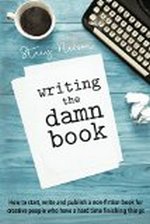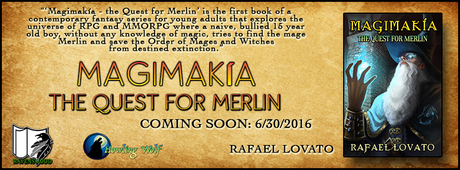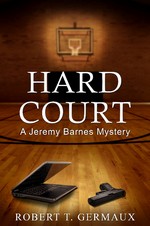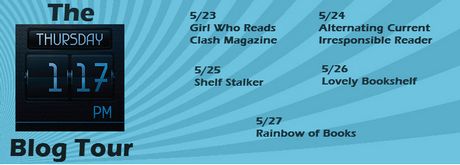 |
Writing The Damn Book: How to Start, Write And Publish A Non-Fiction Book For Creative People Who Have A Hard Time Finishing Things
by Stacy Nelson
Kindle Edition, 83 pg.
BadAss Publishing Co., 2016

Practical Magic for Alchemists Who Like to Play in the Esoteric Sandbox
by Erika Nall
(I had the privilege of reading this book before it was released to the masses.)
The “Who Is Your Reader?” section is the MOST IMPORTANT section. It stopped me dead in my tracks!
I’ve bought countless courses and trainings but something always felt off. I couldn’t quite put my finger on it. All of them had me “start with the end in mind.” I was painting these beautiful pictures of my days, my 3 months from now, my 1 year from now, and beyond. It was so yummy. It tapped into my superpower of visioneering. It satisfied my romanticism. It validated my idealism. Then I reversed engineered to create that in the present.
However, when it came to my readers and clients the “guru” always had me start at the beginning of their journey. “What are her pain points?”
EVERY. SINGLE. TIME. I start there my stomach clenches and my heart shrinks. Inside I feel small and powerless. I get confused and lack clarity. OUCH! It’s painful.
I can hear it now:
Guru: “Lean into your discomfort. Just push through it. This is good for you. This is an opportunity to grow.”
Me: “Um, I don’t think you understand this is not uncomfortable like my shoes are a little too tight or I have a bit of indigestion from the pepperoni pizza I just ate. This is killing me inside.”
Guru: “Well, that’s just a thought. Notice the thought. Let it go back from where it came. Back into nothingness.”
Me: “I don’t think you heard me. THIS IS LITERALLY KILLING ME INSIDE! I avoid death as much as possible thank-you-very-much.”
(And as an alchemist, I know I can excel in the dark art of manipulation to get what I want. I always felt like I went there when I started with pain. “I can help you. Or, better yet “I can save you.”)
Why do I die inside when I start with pain?
My reader is me. I am her. When I talk about her beginning, I am talking about my beginning. When I talk about her insecurities, I am talking about my insecurities. And believe me, they like to show up and be a part of the show anytime they can.
Now, I understand why the beginning is a terrible place to start. Brains are pretty clueless. Whatever it’s thinking, it perceives as reality. That’s its job. And, mine does it very well.
Now I understand that those sensations. That experience is also what happens when I am insecure.
When I wanted to share my message through writing, my self-assurance, my self-confidence, my self-trust was nowhere to be found. Frozen, I just stared at that incessant blinking damn cursor for hours as the insecurities played and had their fun in my head. Frustrated and feeling rather poorly about myself, I would give up. I’d walk out of my office thinking, “What’s wrong with me? How can I usually write so freely and unabashedly with great perseverance one minute, but not the next.”
I wrote the answer, “who is your reader going to BE at the end of the book?” (Honestly, I wasn’t sure if this was going to work.)
And, I felt it. For the first time I felt that what I wrote was coming from a deep place inside of me and not my head. I expected the sensation to be like a blast of, or at least a pulsating, bright light. (Well, that what I thought was suppose to happen when you are passionate and empowered.) Instead, my stomach was relax and I felt a gentle pressure across my chest. It was a constant glow and warmth like after the fire burnt up the firestarters -the tender and the kindling- and it’s just being a fire, doing what fires do. Sure there was an occasional popping of pitch, but I didn’t stop. My fingers just pounded a bit harder on the keyboard.
My breath deep and long. Every once in awhile tears would run down my face. My mind quiet. There was no judging. I just typed. I didn’t set a timer like I usually do to keep me on track. When I felt like I got up into my head, I paused, looked out the window and watched the birds for a little bit, took a few deep breaths, and went back to writing. When all that I had inside was out in black and white -unedited and raw- I looked at the clock and only 50 minutes had passed – talk about flow, baby.
I took a deep breath, exhaling slowly, coming back to my surroundings. Then my intuition said, “Is this making her BE EMPOWERED?” And, I cried.
Several times since then, I’ve tapped back into empowered and I’ve cried every time. Not because I am sad, or happy, or relieved because now I can feel the glorious ginormity of it. How badly, how passionately I want that for my readers AND for me.
You see, I was asking the wrong question. I was starting in the wrong place.
Now when I begin with the energetics of empowerment, I write within the place of security. My assurance, confidence, and trust will be front and center. And, when the writing gets hard and there is a call to perseverance, THIS is what will pull me through the challenges of spreading my message in whatever form I choose.
—–


 Magimakía – the quest for Merlin is the first book of a contemporary fantasy series for Young Adults that explores the universe of RPG and MMORPG. In it, Oliver, a naive young virgin bullied 15 year old boy, without any knowledge of magic, trying to find the mage Merlin and save the Order of Mages and Witches of undoubted extinction, ends his journey victim of a magnificent and at the same time terrible event. Magimakía – the quest for Merlin is the first book of a contemporary fantasy series for Young Adults that explores the universe of RPG and MMORPG. In it, Oliver, a naive young virgin bullied 15 year old boy, without any knowledge of magic, trying to find the mage Merlin and save the Order of Mages and Witches of undoubted extinction, ends his journey victim of a magnificent and at the same time terrible event.
From a young age I always wanted to write a fantasy novel, because of my experience with (MMO)RPG games like Diablo and World of Warcraft. The magical universe, the battles and the powerful characters fascinated me. But writing a fantasy book is not something simple. So, after five books published and feeling capable of a foray into this universe, I finally wrote Magimakía – The search for Merlin.
The first step was to choose about what would be the story, and what kind of races and powers I would use in it. Since I always liked fantasy movies, and there was no way for me to escape this influence, I took Tolkien’s idea of introducing demons as non-religious entities (from Lord of the Rings, the battle between Gandalf and the Balrog). Alongside the demons, I brought angels, who resemble paladins, also not religious, and mages, witches, elves, trolls and goblins.
Regarding the writing itself, to construct the history I used the Hollywood structure, with the characteristics turning points structure (10%, 25%, 50%, 75% and 95%). Also, took great care to develop the “arc of the characters”, and build well-marked voices for the three book narratives: Benjamin, goblins and Oliver. The scenes and sequels respect the international structure (Scene: objective, obstacle and disaster; sequel: reaction dilemma and decision), and wrote the entire text within the MRU’s technique (motivation and reaction units).
The story itself respects the dynamics of the RPG universe, with close attention to powers mathematics. This means that all races powers are balanced, as well as the most powerful entities. To a careful analysis, you can identify that in the mechanics of battles there are warriors, generals, mini-bosses, bosses, and world bosses. This engine respects the dynamics of RPG games, to appeal to the book’s target audience, who are young adult video-gamers aged 12 to 25 (and adults too, of course).
The book was originally written in Portuguese and published in Brazil by Editora Zap Book (eBook and print) and in Portugal by Editora Chiado (print and eBook), both in June/15. Availing the fact that I speak English fluently, I wrote the English version of the book, and introduced it to a US editor, for editing. I was fortunate to present the manuscript to Ravenswood, who did not hesitate to offer me a publishing contract.
About myself, I am a well-established Brazilian author with six books commercially published, being Magimakía – the quest for Merlin the latest. Recently the Oxford University Press bought a short story of my to use in their courseware as writing model for fiction short stories, already published in the book Portuguese language for 6th grade, by Oxford. Magimakía already is the best-selling book of my Brazilian Publisher, which is starting a national advertising campaign of the book.



Thanks to Robert Germaux and My Book Tour, I have a Kindle version of Hard Court to give away!
 We’ll keep it simple — to enter, leave a comment on this post between now and June 2nd at noon (MDST) and I’ll draw a name out of a hat. Obviously, make sure your comment involves some way to get in touch with you 🙂 We’ll keep it simple — to enter, leave a comment on this post between now and June 2nd at noon (MDST) and I’ll draw a name out of a hat. Obviously, make sure your comment involves some way to get in touch with you 🙂

by Robert Germaux
Series: Jeremy Barnes, #2
Kindle Edition, 253 pg.
Robert T. Germaux, 2016
Read: May 20 – 21, 2016

Miles Bradshaw was my first billionaire. I’ve worked for a few millionaires, a good many thousandaires and, occasionally, individuals with negative net worths. When law firms take on a client from the latter group, it’s called pro bono. When a one-man detective agency does it, it’s called not paying your bills. Since I like paying my bills, I try to keep the negative-net-worth clients to a minimum. Lately, it’s been a mixed bag. Most recently, a guy who owned a string of radio stations had hired me to find out who was sending threatening notes to one of his on-air personalities, and after that, a five-year-old neighbor of mine asked me to find Snowball, her lost kitten. I’d been successful in both endeavors. Ed Willoughby had given me a very big check, and Samantha Jane had given me a very big hug. Both the check and hug were appreciated, and both, in my estimation, constituted fair compensation for services rendered.
Whatever else I may end up saying about this book, get this: Germaux’s prose is as smooth as silk, jazz, a baby’s tush, a criminal in a Michael Jackson song, etc. I don’t know how many times while reading this I was tempted to check his list of published works again — he doesn’t write like someone with less than 10 books under his belt (with at least one exception — I’ll get to that in a minute).
Jeremy “JB” Barnes is an ex-English teacher turned P.I. — he’s tough, into yoga, and making wise cracks. He’s got a gorgeous girlfriend (I liked her a lot), an old buddy who’s a cop (a fun character), one that’s a computer expert (not stereotypical in anyway — phew!), and so on. He’s the whole package when it comes to P.I. characters — I soon felt like I’d been reading this series of books for a long time. He’s a little bit Spenser, a little bit Elvis Cole, and a heckuva lot of fun.
Miles Bradshaw, multi-billionaire tech-giant, is the owner of Pittsburgh’s new NBA team. He’s down to earth, brilliant, generous and completely dedicated to his team. Frankly, I’d love to have someone like him in my life (no, really — all down-to-earth, generous, multi-billionaires that read this should give me a call, we’ll do lunch or something — the Whoppers are on me.). He’s concerned because people involved with the team are being harassed — either by people stalking them, vandalizing their cars, or by screwing up electronic communications between suppliers and ticket holders. Miles is convinced that since the harassment is so varied in nature, it has to be coincidental.
But because this is a detective novel, naturally, there’s no way that these aren’t connected. What neither JB or Miles can figure out is how they’re connected. Before they figure that out, they discover that the silly harassment of the team is really something on the fringe of a large-scale criminal enterprise involving organized crime, computers and spoiler-y things. I appreciated the friendship that develops between Miles and JB, something you don’t see enough of in Detective Fiction (P.I.s rescuing clueless clients, teaching them life lessons? Dime a dozen. Two professionals bonding over mutual interests while letting each deal with their strengths? Practically unheard of.). There’s a subplot that has nothing to do with these stories, that basically delivers the message that JB’s lady love is a knockout and he’s not to be messed with.
I am so glad that when he gets to the nitty-gritty of computer crimes, Germaux doesn’t try to explain it in any kind of detail. JB just leaves his friends to it and goes off to do his thing. I’m tired of that kind of thing being explained like a technical manual, or with bad analogies while the tough-guy hero makes jokes about how he can’t understand them. Nope, we get plausible thumbnail explanations and trust that the experts know what they’re doing. Just like most of us do in real life.
There’s some violence (pretty mild, really), some sexuality (very mild, really), enough to let you know that this isn’t a YA novel, but not so terrible that you couldn’t recommend this to your mother. There’s nothing revolutionary to be found here — but Germaux doesn’t seem to be trying to do anything revolutionary. He’s writing a good, straightforward detective novel, and he does that well.
Okay, here’s my gripe: Germaux has clearly drunk deep at the well containing the advice about making sure you propel your readers to the next chapter with a plot development, cliffhanger or something else. Frequently, he does okay with that. But almost as frequently, what we end up getting is ham-handed and/or corny. You almost expect David Caruso to deliver some of his last paragraphs (no, not the cool NYPDBlue Caruso, but latter-season CSI: Miami Caruso).
I guess I have another one: the ending felt a little rushed. Not much though. Not enough to spend more time on. (making us even, I guess)
Both of these problems are easily overlooked and outweighed by the rest of the novel, and I have little doubt that in a few books (especially if they’re new Barnes books), Germaux will have figured out how to avoid both of these.
This book was a real pleasure to read — it felt like I was at least 4 books into a series. The relationships, the histories, the dialogue all felt like the kind of things that I’d been reading for years — I just hope this means I get to read more of them. Germaux knows what he’s going, and I heartily recommend them.
Disclaimer: I was provided a copy of this book by the author in exchange for an honest review.
—–


These questions were provided by My Book Tour
Why a novel about a private detective?
I’ve always loved mysteries, starting when I read the Nancy Drew and Hardy Boys books as a kid. As I got older, I enjoyed Ed McBain’s 87th Precinct novels, and eventually I also got hooked on the characters of Spenser, Elvis Cole and Myron Bolitar, among others. When I decided to write my first full-length novel, there was no doubt in my mind that my protagonist would be a private detective.
How would you describe Jeremy Barnes, Bob?
There’s an old line about people you wouldn’t want to run into in a dark alley. Well, if you did end up in that dark alley with one of those people, JB’s the person you’d want covering your back. He’s a tough guy with a soft spot in his heart for life’s underdogs, and while he’d much rather diffuse a tense situation with his sense of humor, if push comes to shove, he’s more than capable of handling himself that way, too.
Is JB based on anyone in particular?
There’s a little bit of several people I’ve known in JB, but mostly he’s a product of my fertile imagination. Actually, other than the fact that he’s bigger, stronger, younger, smarter and better-looking than I am, we’re remarkably similar!
How do you come up with the plots for your books?
It’s a combination of finding subjects I’m knowledgeable about and things I have an interest in. For example, in Leaving the LAW, JB attempts to help a young man who’s involved with gangs at the school where JB used to teach. In the early 90s, I was teaching at a Pittsburgh high school that the local cops called Gang Central, so I had some personal experience with that whole scene.
Why first person narrative?
I can’t imagine writing about JB in any other way. When I write my Jeremy Barnes novels, I’m right there inside his head. At those moments, we’re one and the same. He’s definitely my alter ego.
You’ve said you can’t see yourself ever writing a character interview with Jeremy. Why is that?
Jeremy exists in the world I created for him, and I’m very comfortable writing about him in that world. But bringing him into this world just doesn’t work for me. It would be sort of like the literary equivalent of breaking the fourth wall in a stage production. I’m sure some authors can pull that off, but I’m not one of them.
Do you have a reading group?
Yes, and the group’s name is Cynthia. As soon as I finish writing a chapter, I give it to my wife. Cynthia knows my characters as well as I do, so I almost always end up using her comments/suggestions.
How important was it for you that Jeremy would have a love interest in the character of Laura Fleming?
I knew from the start that Jeremy would have a woman in his life, a soul mate. The scenes with JB and Laura are my favorite to write, whether they’re discussing one of his cases, talking about her kindergarten kids or just sharing a candlelight dinner at one of Pittsburgh’s hilltop restaurants.
Okay, Bob, last question. Are there other Jeremy Barnes mysteries on the horizon?
I’ve actually written three other books about Jeremy: Small Bytes, Speak Softly and the aforementioned Leaving the LAW. If there’s a demand, I will definitely publish them, too.

Tour Hosted by Susan Barton, My Book Tour

Does this sound familiar? You’ve placed one of your characters (let’s call her Jenny) in a pretty sticky situation, and now you have no idea how to get her out of that pickle. You’ve tried several scenarios, but none of them quite works. Finally, you decide to take a break, clear your mind a bit. You’re thinking grab a quick shower, drive over to Starbucks for a latte, then come back and get to work on saving Jenny. Five minutes later, you’re halfway into that shower, and suddenly, it hits you, the perfect way to extricate Jenny from that sticky situation.
That sort of thing has happened to me often enough that, at some point, I began to wonder about the possibility of a connection between water and creativity. So, of course, I Googled it, and I quickly learned that there is a veritable waterfall of information on this topic. Yeah, I know. Waterfall of info on water. I couldn’t resist it. No more, I promise. Anyway, I discovered that there does, indeed, appear to be a connection, although it’s not the water per se, but rather a progression of events in which water is just one part. With apologies to Mr. Metcalf, my high school science teacher, I’ll do my best to walk you through the process. It involves dopamine, and one of the few things I still remember from Mr. Metcalf’s class is that dopamine equals good. Apparently, dopamine aids in the creative process (no idea; I got a C- in science), but to get the dopamine released into our brains, we first need to be doing something relaxing, like taking that warm shower or a long walk or a leisurely drive in the country. During these types of activities, your mind is distracted from whatever subject you’ve been concentrating on all day (for instance, poor Jenny), which allows your brain to relax at the same time it’s being flooded with dopamine, and before your know it, genius hits.
Okay, there you have it. Maybe not the most scientific explanation of the process (again, C-), but it gives you the general idea. Relaxation plus distraction plus dopamine equal problem solved. So the next time you’re sitting there staring at that blank page, take a hike.

Tour Hosted by Susan Barton, My Book Tour

A few weeks ago, a friend of mine was telling me about a horror movie he’d just seen, and he ended his narrative by saying, “I was literally scared to death!” My first thought was, not unless I’m getting this information in your Memoir from Beyond the Grave. The word literally means actually or really, as in There are literally thousands of people following her on Twitter. That’s a completely believable and verifiable fact. However, if someone says he literally exploded with anger, well, probably not. What’s happened here is that so many people have misused the word literally for so long, it’s become acceptable to use it incorrectly. This has happened with other words, too, the best example possibly being the word bye as it’s both used and misused in professional football. The NFL gives the two teams with the best regular-season records in each conference a bye in the first round of the playoffs, meaning they’ve earned the right to skip that first week. That’s a correct usage of the word bye. However, during the regular season, every team in the league gets one week off, and that’s what it should be called, an off week. But somewhere along the way, someone began referring to that off week as the bye week, and thanks to the Internet, that term went viral and was repeated thousands and thousands of times, until it eventually became part of our national lexicon.
A final example of this linguistic phenomenon involves the word factoid. A little history lesson first. Factoid was coined by Norman Mailer in 1973. Mailer stuck the suffix –oid (which means resembling or having the appearance of) on the word fact to create factoid, which he said referred to “facts which have no existence before appearing in a magazine or newspaper.” Jump ahead several decades, have a few people, including some in major media outlets, start using the word factoid to mean an interesting bit of trivia about a person or event, throw in the Internet (of course) and voila! You have a new definition for factoid.
Okay, let’s take a step back here for a minute. Does all this stuff matter? I mean, what harm is being done by someone saying he was literally scared stiff while watching the latest episode of The Walking Dead? Or by hearing a local sports anchor talk about your favorite team’s bye week in the middle of the season. In the greater, or even lesser, scheme of things, this is all pretty irrelevant. I’m well aware that there are far greater issues to be discussed and debated, and I completely get it that our language is constantly evolving. That’s why, for instance, we ask a new acquaintance where he or she is from instead of saying Whence comest thou? It’s just that I like to see and hear words being used properly. So I hope you’ll forgive me if the next time I hear a reporter on a national newscast say And here’s an interesting factoid, this longtime lover of language smiles a bit as he slowly, quietly and, yes, literally gives his head a small shake.

Tour Hosted by Susan Barton, My Book Tour

I’m a little obsessed about the concept of time in my writing. My first book, We, was about a man who travels back in time only to get stuck as a parasite inside the head of his seven-year-old self. In my latest novel, time stops completely, except for one 17-year-old kid. I suppose the recurring theme is that we have no control over time, even when it gets a little bit wonky. In honor of my obsession, I have created a list of five time-related books (or more precisely that have the word “time” in the title) that I’ve enjoyed over the years.
1) The Time Machine by H.G. Wells
The one that started it all. The original time travel story. Without it, there never would have been Timecop. Seriously though, it is a little hard to imagine that we’d have more than a century of time travel related books, movies, TV shows, etc. if Wells hadn’t had the idea that a time machine was the way to travel to different eras. Of course, unlike most modern time travel fiction, which focuses on the ways that traveling through time can change the present, purposefully or not, Wells had his protagonist travel into the far future where he encountered a parable about class and society. Still, the guy coined the phrase “time machine.” That’s pretty cool.
2) A Wrinkle in Time by Madeleine L’Engle
We don’t need no stinking time machine. In L’Engle’s classic children’s book series, the characters travel through space by “wrinkling time” by means of the tesseract. Most writers now call it a wormhole. No vehicle required. That freed a lot of writers to just zap characters from place to place without tricking out a Delorean. The book also is about how children can save the world without the help of the adults around them, particularly parents. Hello, Harry Potter!
3) A Tale for the Time Being by Ruth Ozeki
OK, this one has the least to do with manipulating time though it is a story about how past family narratives can help soothe present pain. A young woman in Tokyo considers suicide, but researching the stories of her feminist Buddhist nun great-grandmother and her disgraced WWII pilot great-uncle lead her to some surprising revelations about herself.
4) Time’s Arrow by Martin Amis
Amis uses a unique device to write about the horrors of the Holocaust. The narrator is a consciousness inside the head of a former Nazi who is now living a new life in America. But the story is told in reverse chronological order. Time in the book literally runs backward, so we start with the war criminal as an old man and travel unavoidably to his horrific past. It is an unusual and difficult book that allows the reader a new window into understanding the inconceivable cruelty that people are capable of.
5) Time Bandits
OK, I’m totally cheating here. Time Bandits is a movie. But it also happens to be my favorite movie. And it is about traveling through time. So there. One of Terry Gilliam’s earliest films, this one follows a young boy who falls in with a group of dwarfs who previously worked for the Supreme Being until they stole the Big Guy’s map of time holes and decided to use it to steal from the rich throughout history. That only begins to describe how gloriously messed up this movie is.
As part of Reader’s Legacy’s Rowling celebration, they’ve provided me with a few Guest Posts to draw attention to their Sale (through 4/30!) and a Grant Program created in order to give away 1 million physical books in support of literacy programs — be sure to check those out!
—
“I pinned my 1st rejection letter to my kitchen wall because it gave me something in common with all my fave writers!” – J.K. Rowling via Twitter (March 25, 2016).
What do literary geniuses, J.K. Rowling, Dr. Seuss, F. Scott Fitzgerald, George Orwell, and Agatha Christie all have in common? Surprisingly enough, each of them have written books that were rejected by multiple publishers. As hard to believe as that may be, it’s entirely true!
Contrary to popular belief, rejection more than anything is a learning opportunity. Of course, no one welcomes rejection. In fact, they avoid it at all costs. But everyone gets rejected at one point in their life, or another, and instead of dwelling on the pain of being told “no”, they can use that rejection as a motivator – the greatest motivator in their life!
On March 25, 2016, J.K. Rowling took to twitter to share two rejection letters she received on her crime novel, “The Cuckoo’s Calling”, written under the alias of Robert Galbraith. While Rowling’s “Harry Potter” series has sold more than 400 million copies to date, Rowling admits to having self-doubt. “I wasn’t going to give up until every single publisher turned me down, but I often feared that would happen” she explains. Despite these fears, “The Cuckoo’s Calling” was eventually published by Sphere Books, an imprint of Little, Brown & Company, and the rest is history.
Rowling didn’t allow the fear of going unpublished stop her from trying time and time again, which is an example many dreamers can learn from. Yes, rejection bruises a person’s ego and, more often than not, forces them to go back to the drawing board, but sometimes that’s the best thing a person can do. Going back to the drawing board means making improvements both personally, and in one’s work, and making those improvements brings the motivation to pursue that passion even further.
Remember, rejection isn’t a death sentence, but merely a stepping stone which brings you closer to finally hearing that “yes” you’ve been waiting for. Though it might sound crazy to hang a negative note about your life’s work up on a wall, it can serve as a reminder to persevere…and when you achieve your success, it will be a reminder of all that you’ve overcome.
As an added perk of Reader’s Legacy’s Rowling celebration, we will be holding a special 20% off sale for each of her novels from April 25th to April 30th – ReadersLegacy.com/JKRowling.
The sale not only celebrates J.K. Rowling, but was also brings attention for a special grant program we have created in order to give away 1 million physical books in support of literacy programs! Spreading a love of books, and ending illiteracy around the world is 100% possible, and with the help of reader’s on the site, we believe will be one step closer to achieving that goal! Get in on this sale HERE.
|











